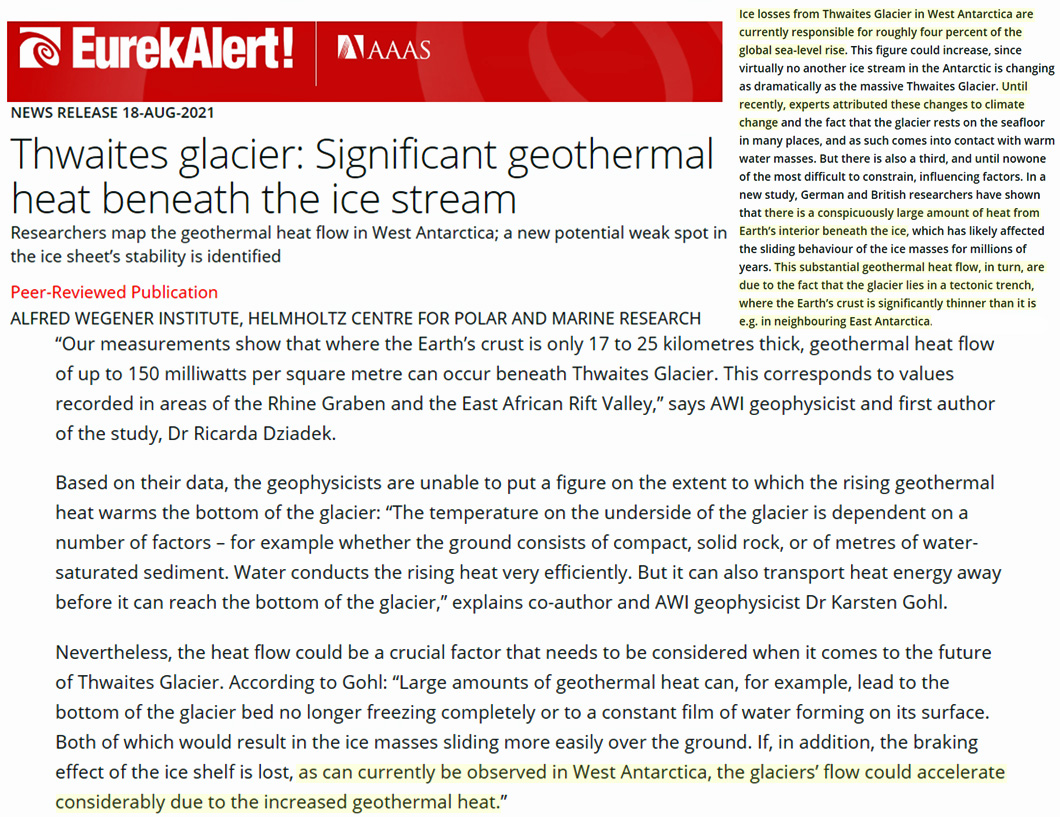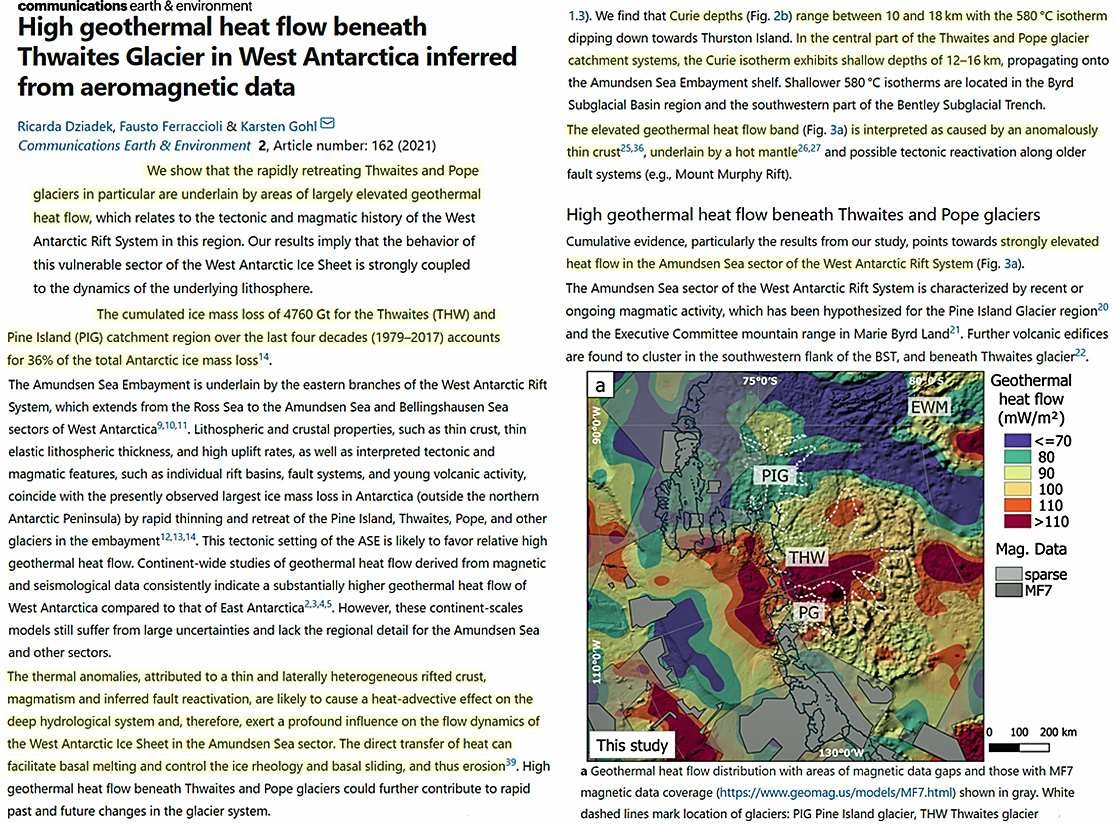According to a new study, 36% of 1979-2017 Antarctic ice loss was from the Thwaites and Pine Island glaciers. Scientists believed this glacier melt was due to anthropogenic climate change “until recently”. Now they say the glacier mass losses are due to the thin underlying crust and anomalously high geothermal heat in this region.
We’ve recently learned that “profound” cooling has been occurring for East Antarctica since the 1970s, and cooling (-1.68°C since 1979) has also extended to West Antarctica.
Another new study indicates Antarctica contributed just 0.76 of a centimeter to sea level rise from 1992-2017, or 0.3 of a millimeter per year. Also, comparing 1997-2008 to 2009-2018, there has been a net advance in the ice extent for Antarctica during 2009-2018.
“Until recently, experts attributed these changes to climate change”
The profound ice loss from West Antarctica’s Thwaites Glacier has by itself been responsible for about four percent of the global sea level rise in recent decades.
Possibly due to allegiance to “consensus” statements about anthropogenic global warming, it was still common for scientists to believe this glacier melt was due to the “warming” in Western Antarctica (that, as noted above, curiously disguised itself as cooling).
But a new study and its AAAS/Science press release throw more cold water on the notion that humans are driving ice melt trends in Antarctica, as “there is a conspicuously large amount of heat from Earth’s interior beneath the ice” in the very locations where the ice melt is most pronounced.

Image Source: AAAS
“The direct transfer of heat can facilitate basal melting and control ice rheology and basal sliding“
While the Earth’s crust has an average thickness of about 40 km, in the region of the Thwaites, Pine Island, and Pope Glaciers, the anomalously thinner crust (10 to 18 km) more readily exposes the base of this regional ice to 580°C tectonic trenches.
The “elevated geothermal heat flow band is interpreted as caused by an anomalously thin crust underlain by a hot mantle,” which is exerting a “profound influence on the flow dynamics of the Western Antarctic Ice Sheet.”
Yet another claim made by anthropogenic global warming enthusiasts has been interred by scientific observation.






This was obvious ten years ago because the pattern of melting matched the locations of known underseas volcanoes. There is no way CO2 could have caused the pattern of local warming in Antarctica. Overall, not much melting there since the 1970s, perhaps none.
But… but… SETTLED SCIENCE!!!
Climate madness has reached such a point that I expect the climate clowns to proclaim that undersea volcanoes are the hidden heat induced by climate change.
Gosh. Wow. What a surprise. Who’da thunk it. Etc.
[…] Read more at No Tricks Zone […]
Scientist associated with the IPCC have generally been quite cautious in attributing Antarctic ice loss to climate change. So the article is not a dramatic difference in previous thinking.
It is quite clear, however, that the loss of Arctic ice — open sea ice shelf and land based ice, such as Greenland’s — is definitely due to climate change and is accelerating.
Actual data condratict your claim :
http://polarportal.dk/en/greenland/surface-conditions/
http://ocean.dmi.dk/arctic/meant80n.uk.php
http://ocean.dmi.dk/arctic/icecover.uk.php
No loss acceleration, and it’s quite the opposite.
If there is one single climate phenomenon on earth worth worrying about, it is Antarctic cooling.
[…] Full article .. […]